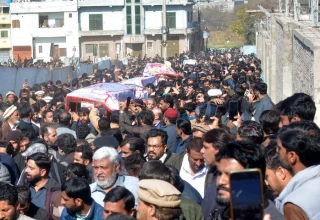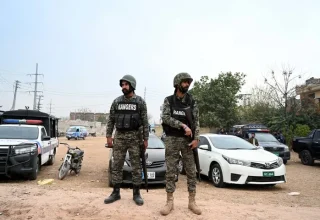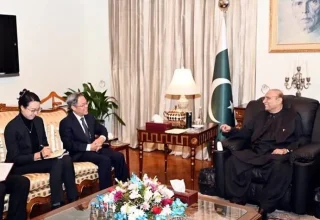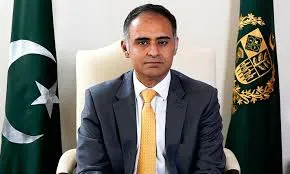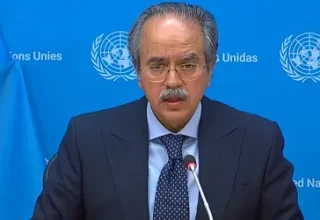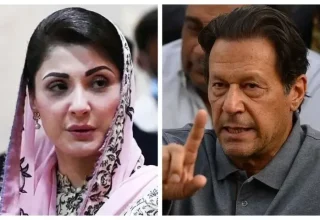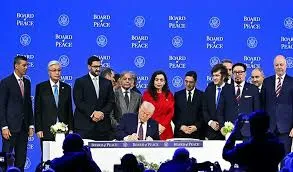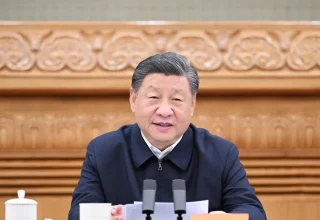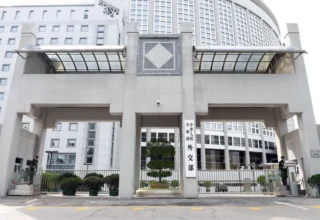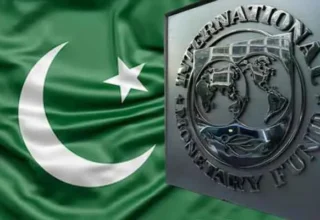
Pakistan is gearing up for crucial talks with the International Monetary Fund (IMF), with Prime Minister Shehbaz Sharif instructing his economic team to negotiate maximum relief in light of the country’s devastating flood losses.
Officials have made it clear that no mini-budget for additional taxes is under consideration.
No mini-budget, says FBR chief
Federal Board of Revenue (FBR) Chairman Rashid Mahmood Langrial emphasized that there will be no mini-budget and no immediate proposal for imposing new taxes.
He clarified that the government plans to meet revenue targets through tax enforcement and compliance measures rather than burdening citizens with fresh levies. The IMF will be persuaded that instead of a mini-budget, revenue would be enhanced by strictly implementing tax measures, sources said.
Langrial added that it is too early to comment on changes to the annual tax revenue target, which may be reviewed after discussions with the IMF.
Govt weighs options amid flood losses
According to the Ministry of Finance, the government had earlier considered imposing a flood levy to cover damages, but the idea has not moved forward.
The FBR chief said multiple options are under review to manage the financial impact of the floods, including relief measures for victims and adjustments in fiscal targets.
Relief measures on table
Sources within the Finance Ministry revealed that Pakistan will push for significant relief from the IMF during the upcoming review. Among the proposals under discussion:
- Relief in electricity bills for flood-affected households in September.
- Easing repayment of agricultural loans for farmers hit by the disaster.
- Adjustments in tax targets for the FBR, briefing on shortfall in collections.
- Acknowledgment of flood-related revenue losses in fiscal planning.
A slight reduction in the economic growth target is also expected to be discussed.
Strategy for IMF talks
Officials said the government will present the IMF with a detailed plan to boost revenues through strict enforcement of existing tax measures, rather than introducing new taxes.
The IMF will also be briefed on the tax shortfall faced by the FBR and the broader economic impact of the floods, which have undermined collection targets.
PM Shehbaz’s directives
Prime Minister Shehbaz Sharif has directed negotiators to make a strong case for Pakistan’s economic relief, stressing that the floods have placed immense pressure on households, agriculture, and the overall economy.
The Finance Ministry, sources added, is determined to convince the IMF that revenue gains can be achieved without further taxation, while still protecting vulnerable communities.
Earlier, it had been reported that the federal government was preparing to introduce a mini-budget aimed at raising at least Rs50 billion to support flood victims’ rehabilitation and address a widening tax shortfall. Officials had confirmed that new levies on luxury items and cigarettes were under consideration.
The proposed mini-budget had sought to impose additional taxes on luxury vehicles, cigarettes, and imported electronic goods. A levy equivalent to the regulatory duty that was reduced in June was also an option on imported products.
Federal Board of Revenue (FBR) officials had claimed that a 5% levy on electronic goods was under review.
Levies on luxury cars and cigarettes
The plan also included a levy on luxury vehicles with engines of 1,800cc and above. However, officials noted that approval from the International Monetary Fund (IMF) would be required before such taxes can be implemented.
In addition, the government was reportedly considering imposing a Rs50 levy on each pack of cigarettes. Unlike other revenue streams, this levy would not be shared with the provinces and will go directly to the federal government.
Shortfall in tax collection
The urgency for the mini-budget reportedly came amid a significant revenue shortfall. The FBR reported that in August, Rs901 billion had been collected against a target of Rs951bn, leaving a Rs50bn gap.
From July to August, tax revenue declined by nearly Rs40bn compared to projections. The overall revenue target for FY2025 is Rs14,131bn. However, officials said floods, reduced electricity and gas consumption, and sluggish business activity have hindered collection.


